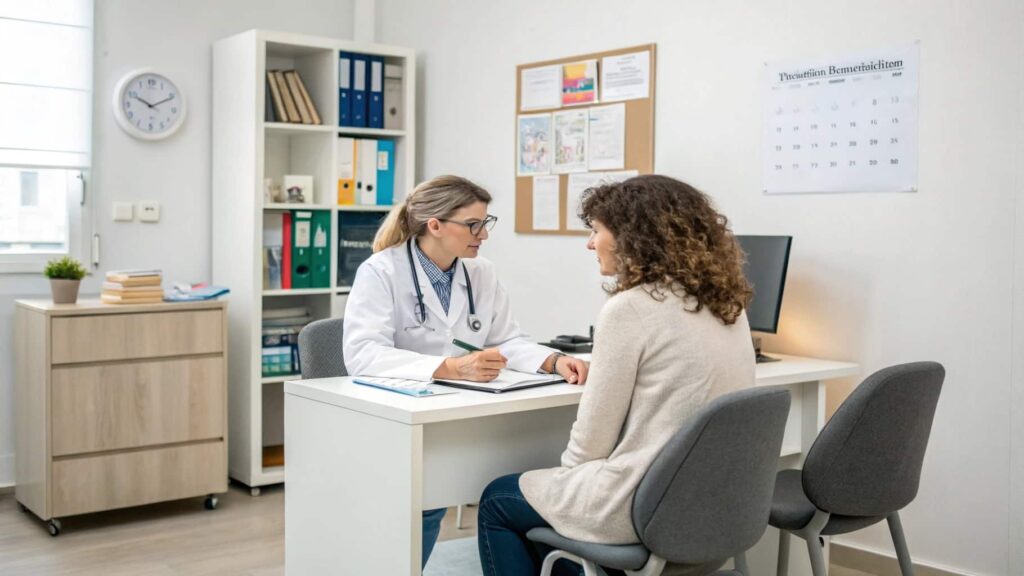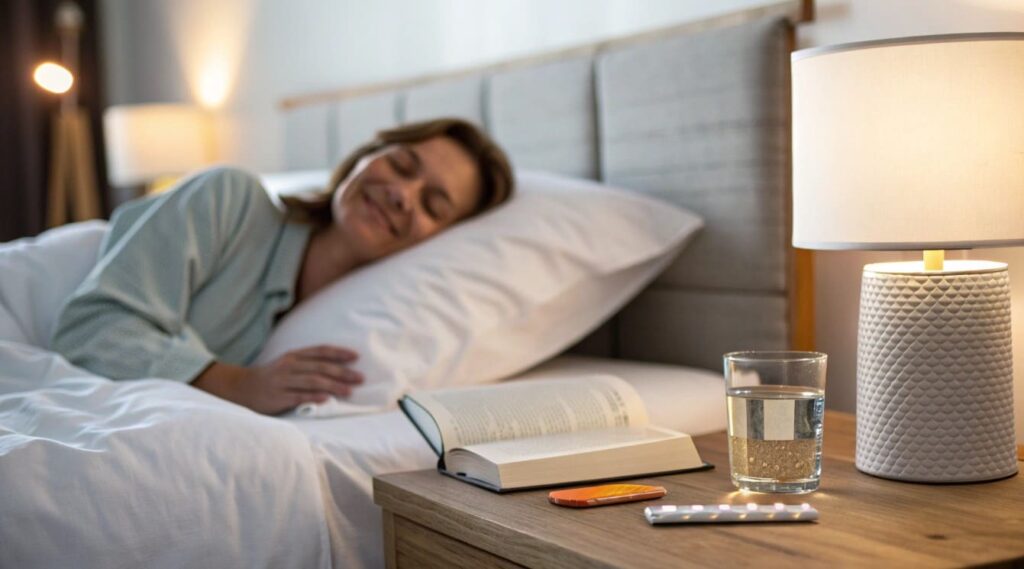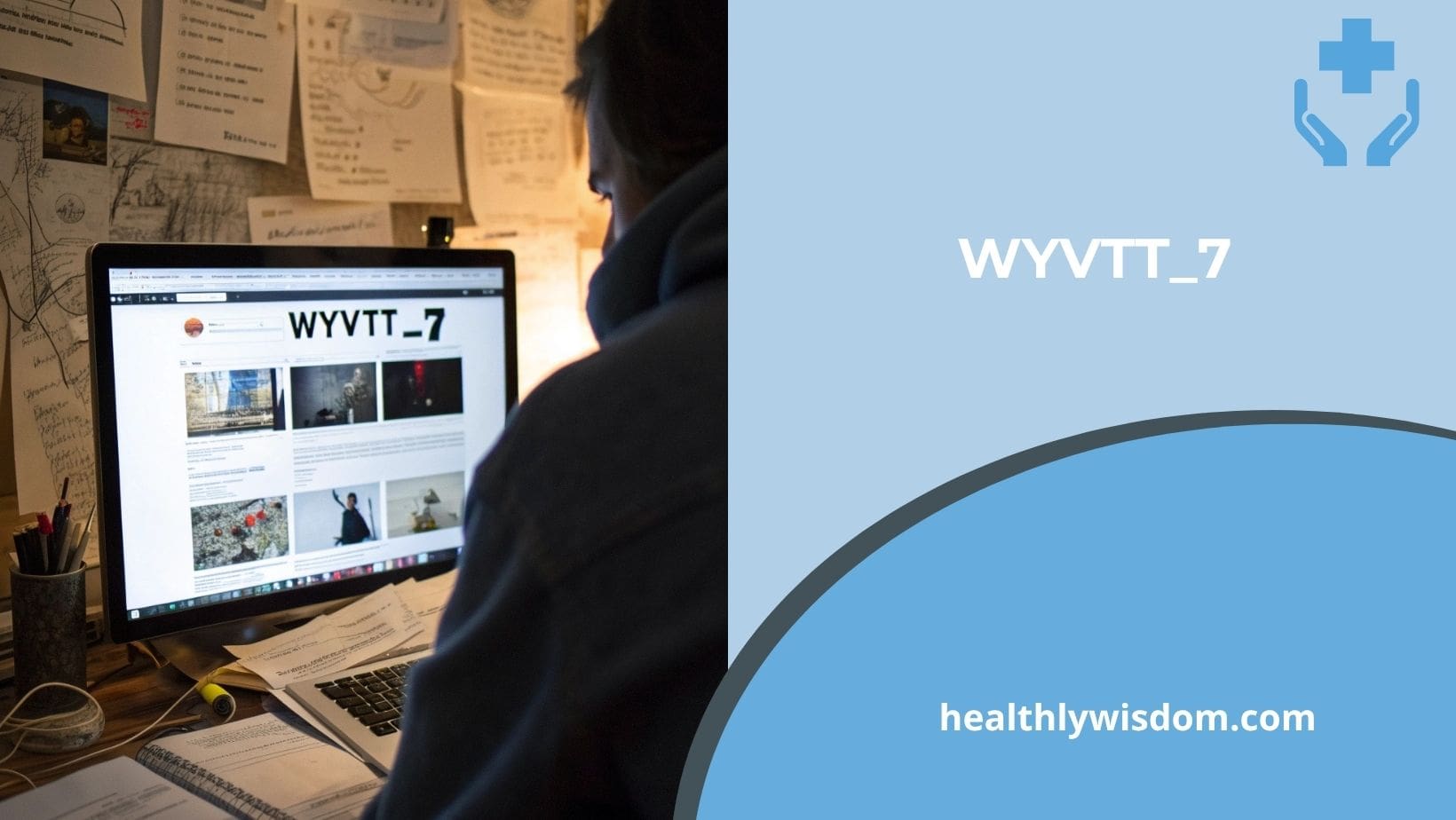Living with anxiety can feel like you’re carrying an enormous weight that only seems to grow heavier. If you’ve ever found yourself thinking, “I need anxiety medication ASAP,” you’re not alone. Anxiety can overwhelm even the strongest of individuals, and in moments of extreme distress, the desire for relief can feel urgent. But while it’s tempting to seek immediate solutions, it’s essential to approach anxiety treatment in a way that’s both effective and safe.
In this guide, brought to you by BlackRockLast.com, we’ll walk you through the process of understanding anxiety, recognizing when it’s time to seek medication, and how to approach it. By the end of this article, you’ll have a clearer understanding of how to find help and the steps to take toward recovery—quickly and safely
What Is Anxiety And When Medication Is Needed?
It’s completely normal to feel anxious from time to time—whether it’s the stress of a looming deadline, the pressure of preparing for a big event, or just the unpredictability of everyday life. However, when anxiety goes beyond occasional stress and starts taking over your life, it may signal an anxiety disorder.

So, how do you know if you need anxiety medication? When anxiety starts to interfere with your ability to function—whether that’s at work, in relationships, or during everyday tasks—it’s time to seek professional help. If your anxiety feels out of control, it may be helpful to talk to a healthcare provider about potential treatment options, including medication.
Common Signs And Symptoms of Anxiety – 7 Key Red Flags You Shouldn’t Ignore!
You might want to consider anxiety medication if you experience:
- Constant worry that doesn’t seem to go away, even when there’s no clear trigger
- A racing heart or trouble breathing during anxiety episodes
- Trouble sleeping or feeling exhausted despite resting
- Physical symptoms like shaking, sweating, or nausea when anxiety strikes
- Persistent worry that interferes with your daily routine
If any of these sound familiar and you’re feeling like “I need anxiety medication ASAP,” it may be a sign that professional help could be beneficial. You’re not alone in feeling this way, and getting support can be the first step to reclaiming control.In this article, we’ll walk you through everything you need to know about getting anxiety medication quickly, how the process works, and what your options are. Whether you’re just starting to explore treatment options or are looking for immediate solutions, we’ve got you covered.
Read: Smelling Salts For Anxiety – Can They Really Help Or Are They Dangerous?
Why People Say I Need Anxiety Medication ASAP?
Anxiety can be acute, intense, and debilitating. A job interview, tight deadlines, or acute social fears can trigger moments when individuals feel immediate relief is not just desirable but necessary. There are a few reasons why someone might think or say, “I need anxiety medication ASAP”:
- Unmanageable Symptoms: When daily tasks become herculean due to overwhelming worry, or panic attacks strike unexpectedly, immediate help feels indispensable.
- Fear of Losing Control: Individuals may worry they’ll harm themselves or others if they can’t swiftly mitigate their anxiety.
- Urgent Life Events: Looming events—like a big exam or an important presentation—can magnify the need for rapid relief.
- Previous Positive Experience: If someone has taken anxiety medication before and found it helpful, they may want to return to that relief quickly.
However, it’s important to balance urgency with safety. Rushing into medication without proper evaluation and prescription guidance can lead to misuse, incorrect dosing, or reliance on a medication that doesn’t adequately address the underlying issues.
Is Medication Always Necessary for Anxiety?
Medication isn’t the only solution, and it’s not always the first line of defense. Plenty of individuals effectively manage anxiety through psychotherapy, lifestyle changes, and alternative treatments. However, in cases of moderate to severe anxiety—or when symptoms significantly interfere with daily life—medication can be a vital part of a comprehensive treatment plan.
Here are some situations where medication might be especially helpful:
- Severe Anxiety Disorders: Generalized Anxiety Disorder that’s persistent, debilitating panic disorder, or phobias that drastically limit your lifestyle.
- High Levels of Physical Distress: People who experience consistent heart palpitations, shortness of breath, or other debilitating physical symptoms may need the relief medication can provide.
- In Conjunction with Therapy: Many mental health professionals recommend combining medication with therapy (e.g., Cognitive Behavioral Therapy, or CBT) for more effective, long-lasting results.
- When Lifestyle Changes Aren’t Sufficient: Exercise, meditation, and a healthy diet are powerful tools, but may not be enough for everyone.
If you’re unsure whether medication is the best route, a qualified healthcare professional (such as a psychiatrist) can guide you through the pros and cons based on your medical history and individual needs.
Who Can Prescribe Anxiety Medication?
Once you’ve decided to seek treatment for your anxiety, the next question is: who can prescribe medication for it? Well, there are a few healthcare professionals qualified to prescribe the right medication for you.

Healthcare Providers Who Can Prescribe Anxiety Medication:
- Psychiatrists – These medical doctors specialize in mental health conditions, including anxiety. They have the training to assess, diagnose, and treat mental health issues with medication, often combining medication with therapy when necessary.
- Psychiatric Nurse Practitioners (NPs) – These advanced practice nurses specialize in mental health and can prescribe medications as part of your treatment plan.
- Primary Care Physicians (PCPs) – Your family doctor may also prescribe anxiety medication, although they might refer you to a specialist, such as a psychiatrist, if needed.
While a primary care doctor can prescribe medication, psychiatrists have more expertise in managing anxiety medications and mental health conditions overall. Regardless of who you choose, the key is to find a healthcare provider who makes you feel comfortable and understood.
How To Get Anxiety Medication ASAP?
When you’re feeling overwhelmed by anxiety and thinking, “I need anxiety medication ASAP,” it’s important to take a thoughtful approach to ensure you get the right help. Here’s a step-by-step breakdown of how to get the medication you need:
Make an Appointment with a Healthcare Provider:
Whether it’s with EworldExternal primary care physician, a psychiatrist, or a psychiatric nurse practitioner, the first step is to schedule an appointment. EworldExternal might be able to get an appointment sooner by seeing a virtual provider, which many services offer these days.
Prepare for Your Appointment:
Before you go, it’s helpful to make a list of your symptoms. What have you been feeling? How long has it been going on? Has it been affecting your daily life? Providing clear, concise information will help your provider make the best recommendations.
Follow Your Doctor’s Advice:
If medication is recommended, it’s crucial to follow the doctor’s instructions regarding dosage and usage. Be sure to ask about potential side effects and how long it may take for the medication to start working.
Keep Track of Your Progress:
After you start taking medication, keep track of how you’re feeling. Are the symptoms easing, or are there side effects you’re concerned about? Following up with your provider ensures that any adjustments to your treatment plan can be made as needed.
Read: Anxiety Treatment Revive Denver – Effective Solutions For A Peaceful Mind!
Can You Get Anxiety Medication Without Seeing a Doctor?
This is a common question, especially when anxiety feels unbearable and you’re looking for fast relief. The short answer is no, you cannot legally get prescription anxiety medication without seeing a licensed healthcare provider. Only a doctor, psychiatrist, or psychiatric nurse practitioner can prescribe medications like antidepressants, benzodiazepines, or beta-blockers.
While some over-the-counter supplements claim to relieve anxiety, they aren’t FDA-approved for treating anxiety disorders. Plus, some of these supplements might come with their own set of risks. It’s always best to talk to a healthcare provider before trying anything on your own.
Types Of Anxiety Medication – What You Need To Know!
There isn’t a one-size-fits-all solution for treating anxiety, so understanding the different types of medications available is key to finding what works best for you. Your doctor will tailor the treatment to your specific needs.
| Medication Type | How It Works | Examples | Pros | Cons |
|---|---|---|---|---|
| Antidepressants | Increases serotonin/norepinephrine | Prozac, Zoloft, Cymbalta | Non-addictive, long-term use | Takes weeks, side effects |
| Benzodiazepines | Enhances GABA to calm the brain | Xanax, Ativan, Valium | Fast-acting, effective for panic | Risk of dependence, short-term use |
| Beta-Blockers | Blocks adrenaline to reduce physical anxiety | Propranolol, Inderal | Reduces physical symptoms quickly | Doesn’t treat mental symptoms |
| Buspirone | Affects serotonin receptors | Buspar | Non-habit forming | Takes weeks to work |
| Tricyclic Antidepressants | Increases serotonin/norepinephrine | Imipramine, Nortriptyline | Effective for severe anxiety | More side effects |
The Benefits Of Anxiety Medication – Dont Miss Out!
When used properly, anxiety medication can be an essential tool in reducing the symptoms of anxiety and improving quality of life. Here are some of the benefits:

- Immediate Symptom Relief: To begin, certain anxiety medications can quickly reduce intense worry or panic. In those overwhelming moments, a fast-acting option can feel like a genuine lifeline.
- Enhanced Day-to-Day Functioning: Moreover, anxiety medication can help you stay focused and productive in your routines. This steady support often translates into clearer thinking and reduced emotional strain.
- Reduced Physical Discomfort: Additionally, medications may ease racing heartbeats, tense muscles, and digestive issues linked to anxiety. Feeling more at ease in your own body can free up energy for the things you love.
- Better Sleep Quality: Furthermore, improved nighttime rest is another bonus of treating anxiety effectively. When you sleep well, it becomes easier to wake up refreshed and tackle the day with optimism.
- Support for Therapy and Coping Strategies: Meanwhile, medication can act as a bridge to make therapy and other coping tools more successful. By lowering your stress threshold, you can learn new habits without feeling overwhelmed.
- Long-Term Stability and Peace of Mind: Finally, many individuals discover a sense of grounding once they find the right medication. With that stability in place, you can better focus on personal growth and self-care.
Potential Risks And Side Effects Of Anxiety Medication – Need To Know!
While anxiety medications can be helpful, it’s important to be aware of potential side effects. These might include:
Dependence and Withdrawal:
While anxiety medications like benzodiazepines can provide quick relief, they carry a risk of dependence when used long-term. It’s essential to work closely with your provider to avoid withdrawal symptoms and ensure the medication remains effective without causing reliance.
Side Effects Impacting Daily Life:
Some medications can lead to side effects such as drowsiness, dizziness, or difficulty concentrating. These effects can interfere with your ability to perform daily tasks, but with proper dosage adjustments, these side effects can often be managed.
Increased Risk of Weight Gain or Loss:
Certain medications, especially antidepressants, can cause changes in appetite or metabolism. This can result in unexpected weight fluctuations, which may be frustrating, but it’s important to monitor and report any changes to your doctor.
Sexual Dysfunction:
Another common side effect, particularly with SSRIs and SNRIs, is a reduction in sexual drive or performance. While this can be distressing, it’s a known issue, and your doctor may adjust your treatment plan to alleviate these concerns.
Sleep Disturbances:
Some anxiety medications may either make you feel too sleepy or cause insomnia. It’s crucial to discuss any changes in sleep patterns with your healthcare provider so they can find the right balance for your needs.
How Long Does It Take for Anxiety Medication to Work?
Firstly, it’s important to understand that everyone responds differently, and the timeline can vary by medication type. Some fast-acting options, like benzodiazepines, may bring relief within minutes or hours. On the other hand, SSRIs and SNRIs often need several weeks to reach their full effect.
Additionally, staying in close touch with your healthcare provider helps track any improvements or side effects along the way. Meanwhile, patience is key—many people start noticing consistent changes around the four to six-week mark. Finally, remember that giving your body enough time to adjust can significantly increase the chances of feeling more stable and at ease.
Alternatives To Medication For Managing Anxiety – What Actually Helps Without Pills!
While medication can be incredibly helpful, it’s not the only option. Many people find relief through:

- Cognitive Behavioral Therapy (CBT): One of the most effective non-medication options is Cognitive Behavioral Therapy, which helps you identify and reframe negative thought patterns. Over time, it empowers you to manage anxiety by challenging irrational fears and building healthier thought processes.
- Mindfulness and Meditation: Practicing mindfulness or meditation can help you stay grounded in the present moment, reducing worry about the future. These techniques allow you to calm your mind and body, leading to less overall anxiety.
- Exercise: Physical activity is a natural stress reliever, releasing endorphins that improve mood and reduce anxiety. Even simple activities like walking or yoga can have a profound impact on your emotional well-being.
- Breathing Exercises: Deep breathing techniques, such as diaphragmatic breathing, help activate the body’s relaxation response. Taking slow, deep breaths can immediately lower your heart rate and relieve tension, offering quick relief during moments of anxiety.
- Lifestyle Changes: Maintaining a balanced diet, getting regular sleep, and managing your time effectively can also make a huge difference. These simple yet powerful changes can help stabilize your mood and reduce triggers for anxiety.
- Support Groups: Sometimes talking to others who understand what you’re going through can provide immense relief. Support groups—whether in person or online—create a safe space to share experiences and coping strategies, helping you feel less isolated.
FAQs:
Can I become dependent on anxiety medication?
Certain medications, especially benzodiazepines, do come with a higher risk of dependence if used long-term. Working closely with your prescriber and using them as directed can help prevent this issue. In many cases, a balanced plan involving therapy, lifestyle changes, and careful monitoring can reduce the likelihood of dependence.
Do I need to take anxiety medication forever?
For some, medication is a short-term bridge to stabilize symptoms, while others may benefit from longer-term use. Regular check-ins with a mental health professional ensure you’re on the right path and can safely taper off if appropriate. Ultimately, the duration depends on your personal goals and ongoing well-being.
Are non-medical approaches enough to manage anxiety without pills?
Many individuals manage anxiety successfully through therapy, lifestyle changes, and holistic techniques. However, severe or persistent anxiety might require medication for adequate relief, at least initially. A balanced approach often combines multiple strategies for the best long-term outcome.
What should I do if I experience severe side effects?
First, contact your healthcare provider immediately, as they can offer guidance on next steps or dosage adjustments. Keep a record of any new or worsening symptoms to share during follow-up. If needed, a different medication or additional treatments might be suggested to keep you safe and comfortable.
Can alcohol or other substances interact with my anxiety meds?
Yes, mixing anxiety medications—especially benzodiazepines—with alcohol or other drugs can heighten side effects and risks. This combination might lead to increased drowsiness, impaired judgment, or even dangerous respiratory issues. Always review potential interactions with your healthcare provider to stay safe.
Conclusion:
Thinking “I need anxiety medication ASAP” is a normal response when symptoms feel overwhelming. However, seeking professional guidance ensures you find the right medication and dosage. Meanwhile, combining medication with therapy and lifestyle changes often leads to better, longer-lasting relief.
Remember, everyone’s journey is unique and takes time. Lastly, stay hopeful—effective solutions are within reach, and you don’t have to face anxiety alone.
Also Read:








Leave a Reply